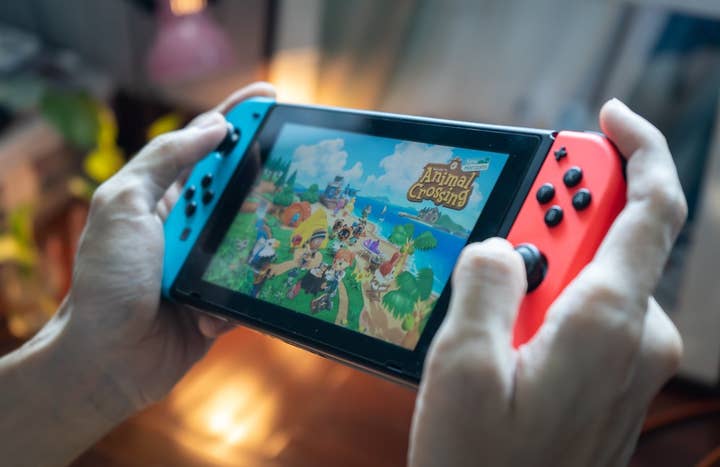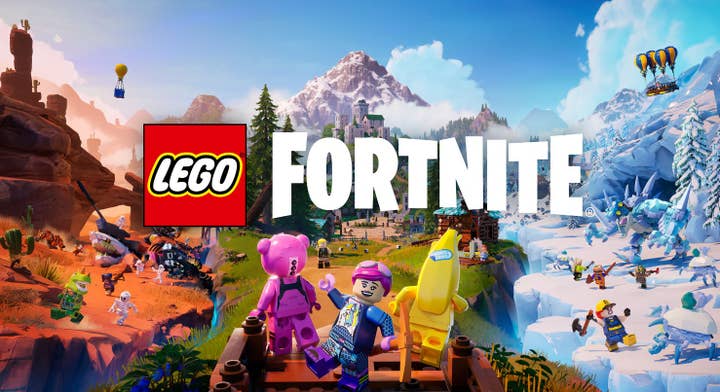Seven reasons to be hopeful about the future of the video games industry | Opinion
We look at the key developments and opportunities for games companies of all sizes
The past 12 months have been the bleakest I've seen in video games.
Cancelled projects, closed studios and thousands upon thousands of employees laid off, with few jobs available for them to step into. And this period of intense pain is likely to continue all year and into 2025.
We've discussed at lengths the reasons for the situation. As an industry, we spent too much during the pandemic, costs have risen exponentially, revenue is falling, competition is as fierce as ever and investment levels have plummeted. It's a perfect storm of issues that has led to this 'great correction', where companies are taking significant measures to change or cut what they're making and what they're spending their money on.
The headlines contrast against the quality of the games that are being created, and the fact there are more gamers today than there were five years ago.
But the question that investors and business leaders are asking is one around growth... what is going to kick-start a new phase of growth for video games? And even those companies who aren't reliant on the numbers going up every year, many of them are looking around at what opportunities might drive their businesses going forward.
For me, there are seven developments that give me hope about the immediate future of games.
1. The next Nintendo console

Nintendo's next generation machine is on the horizon (we think). As a console that will replace the (very popular) Nintendo Switch, it's not clear if this will drive much growth for the games business overall. And it's true that Nintendo consoles rarely benefit many companies outside of Nintendo itself.
However, Nintendo is actively looking for new development partners, early adopters of hardware are typically more willing to try new things (and spend more money), and although the install base is lower, competition and discoverability is typically more favourable.
Switch, for all its success, doesn't have the biggest software attach rate. That might be due to the number of people (and families) who own multiple Switch consoles, but there is clear room for improvement here. If Nintendo can build a 'stickier' console, with higher engagement and software sales, that will provide a boost to the market.
We are seeing bigger companies begin to invest a bit more in developing for Nintendo hardware, with EA creating a dedicated version of EA Sports FC 24 for Switch last year, and Microsoft committing to bringing Call of Duty to Nintendo platforms going forward. However, the games better suited to Nintendo's machines are those that go a bit broader (and younger) such as Just Dance, Hogwarts Legacy and Minecraft. And it's these games (plus indie titles) that will likely benefit the most from a new Nintendo console.
2. Epic's Fortnite plan

Epic Games' efforts to turn Fortnite into Roblox took a step up at the end of last year. The company published three games built with the Unreal Editor for Fortnite tools: LEGO Fortnite, Fortnite Festival and Rocket Racing
Although developers have been building branded experiences using Fortnite's Creator mode in the past, Unreal Editor for Fortnite offers a lot more, and Epic is eager to get third-party studios on-board. The idea is compelling when you consider the size of Fortnite's active audience and the fact it allows developers to reach users on all platforms.
It will inevitably get compared to Roblox, which has an even bigger audience and a similar proposition. But the key differences are the Unreal tools and the age of the players. Whereas the majority of Roblox players are under 16, the opposite is true for Fortnite, which potentially means more opportunities for monetisation.
There are some questions and tweaks to work through. For example, how many Fortnite players will want to put down Battle Royale for something new? But Epic is pushing this hard, and that should be reason enough to pay close attention to what it's doing.
3. Developing markets and global opportunities
An ever-growing share of the games market is coming from outside of the core Japanese, American, European and even Chinese markets. The increasing capabilities of smartphones (more on that in a moment), is creating opportunities for even traditional AAA developers to reach new gamers in new places. Territories in Southeast Asia are delivering huge numbers, while Newzoo says that Latin America (up 3.8% year-on-year) and Middle East and Africa (up 4.7% year-on-year) are enjoying strong revenue growth.
For some of these markets, in particular territories like India, the key to success is likely through locally produced games. As we've seen with film and TV, these markets don't always respond best to Western entertainment. And we have seen the likes of Ubisoft establish studios in emerging territories, while Xbox has been actively supporting local teams through its ID@Xbox program.
"For some of these markets, the key to success is through locally produced games"
Yet even without region-specific software, these markets are fast becoming major opportunities for most games businesses.
4. Powerful mobile hardware and app store changes
After nearly a decade of constant growth, the mobile games market is facing challenges, driven (in part) by privacy changes that make it harder for app developers to promote their games. However, there are several developments that could help drive the next stage of growth in mobile games.
As mentioned above, the increasing capabilities of smartphones are enabling AAA developers to bring its titles to the platform (even if the form factor and control solutions are not necessarily ideal).
But it's the breaking up of the app stores that offers the best opportunity. This would mean developers can sell their games (and microtransactions) directly, and not be forced to go through Apple or Google's own stores, potentially offering better margins and (in turn) investment in the products. It's the big mobile games from the major studios that will benefit most from this, but the inclusion of an Xbox app store, Epic app store, and so on for Apple and Android devices will offer important competition and alternative options for developers of all sizes.
The regulation of these mobile ecosystems has been slow, and Apple is doing its best to frustrate and delay things. Yet it feels inevitable, it just might take a little longer than anyone would like.
5. Convergence with movies and TV

Video game expansion into TV and film is nothing new, and it's not always lucrative (unless you're capable of co-funding productions). Yet in the ever-challenging battle for consumer attention, it's through this activity that developers and publishers can look to establish their brands and maintain interest between releases. We've seen things like the Mario and Sonic movies, and The Last of Us TV show, have a small but noticeable impact on software sales.
What’s more, TV and movie houses have identified video game properties as an opportunity to create hit productions that might unlock new audiences, or at least get a gaming audience to put down the controller to visit the cinema.
Although the big brands from the major studios are the ones best places to capitalise on this, we have seen games from smaller studios expand into this area – Cuphead, for example. This blossoming relationship between linear and interactive entertainment, and how those worlds cross over, will continue to be a rapid area of growth (and possibly innovation) for a while yet.
6. New tools (and yes, AI)

One of the bigger challenges in games development is that it's taking companies longer to make them, requiring more people to do it and, by extension, costing substantially more with each passing generation. This is particularly an issue in the AAA space, where development budgets are ballooning to unsustainable levels.
Part of this is a hangover from COVID, where the switch to remote work resulted in delays and increased cost, and we might expect that to correct itself in time. But this was an issue before the pandemic and remains one today.
This is where advancement in development tools and AI might provide a solution. We're seeing quite rapid improvement in video game engines and tools, driven by Unity and Unreal, with an increased focus around making impressive games faster (and therefore on a smaller budget).
AI, and generative AI in particular, also offers up opportunities to speed up development. There are deep concerns around AI, ranging form ethical issues in terms of how information is obtained, the perception of AI amongst consumers, and inevitable legal regulation. Those are significant things to work through, but if they can be, then there's potential here for studios of all sizes.
7. The new (and old) generation of gamers

Finally, the games industry is young. There are still generations upon generations alive today who did not grow up playing video games. With each passing year, the number of 'digital natives' increases, and therefore gaming's potential audience is expanding. It's also allowing a social acceptance around video games. I didn't have gamer parents, but my kids do.
We can see from the huge numbers posted by Roblox and Minecraft that there is a significantly engaged generation of players coming through, which is reassuring for the future.
However, the key to audience expansion is making sure there aren't people disappearing out of the hobby. As people get older and start families, their entertainment time reduces, and their ability to play 100-hour RPGs, or deep live service games, becomes restricted. It's not uncommon for these people to 'age out' of video games (certainly on console and PC).
The industry is becoming more adept at catering for older audiences. We've seen traditional game devices become more flexible; products like Steam Deck, Nintendo Switch and even services like Xbox Cloud Gaming all enable gaming to fit into different lifestyles. We're also seeing a continued rise in retro game services, remasters, remakes and spiritual successors. It's nothing particularly new, but it's all playing a part in keeping older players in the market.
What about subscriptions?
There are clear opportunities with the subscription model. For indie studios, it's a way to receive an upfront payment that eliminates financial risk and opens their game up to a large audience. For AAA publishers, it's a means to boost engagement and interest in legacy titles.
However, there are concerns about the impact of subscription on premium releases and, by extension, video game revenues overall. There are also concerns around the power these services might have if the industry becomes as subscription-driven as music or TV.
Where you sit on that conversation might come down to whether you believe subscriptions has much growth left in it. Games are (often) much longer than your average TV show, live service titles (and free-to-play) are dominant, and it's not clear how appealing subscription models will be outside of the most dedicated players. The general population simply don't engage with as many games as they do TV shows or films.
Regardless, although I expect subscription to grow this year, I'm wary there may be fewer opportunities for third-party developers and publishers. Reports from publishers last year said that Microsoft was being a little less generous with their Game Pass deals. And with Activision Blizzard games being added to Game Pass, it's to be seen if Microsoft plans to sign as many third-party deals in 2024 as it did in 2023. Ubisoft, which does sometimes feature indie games in Ubisoft+, told to us earlier this month that its focus for now is on the Activision library (Ubisoft has the streaming rights to Activision Blizzard games).
Of course, the flip side is that Sony might look to sign more games into PlayStation Plus to compete with Game Pass. So, in terms of industry opportunity, I'd list subscriptions as a 'maybe'.
What about streaming?
The dream of game streaming is exciting. It's the idea that gamers can play the most impressive AAA game without the need for expensive hardware and can play them wherever they happen to be. Suddenly games publishers are not restricted to marketing their games to just those with the required kit (although they would still need a controller).
However, the technology still isn’t there, the experience isn't right, and nobody has yet settled on the best business model for this, either. The dream is alive, but expect to wait five to ten years before it becomes anything resembling a reality.
"The quality of games has been incredible, and gamers are coming out in huge numbers to play them"
The games industry is in a tough spot right now. And there's no obvious VR/Blockchain/Metaverse buzzword to get investors over-excited. But there are plenty of promising developments and opportunities to explore.
And even outside of those business changes, the biggest reason to believe must come from the fans themselves. The 19 million people who played indie game Palworld in less than two weeks, the 24 million who picked up Hogwarts Legacy, or the 10 million who bought the latest Zelda in just one weekend... The millions of people who have fallen in love with the likes of Baldur's Gate 3 or Starfield or Dave The Diver or Spider-Man 2.
If you ask these fans if they think the games business is in a tough spot, they'll likely be surprised by the question. The quality of video games in recent years has been incredible, and gamers are coming out in huge numbers to play them. That's an enviable foundation to build from, and quite the reason to believe in the future of video games.

